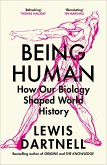Since the Enlightenment, human-animal relationship has gone through a transformtion.19th-century Western society brought new ways of expoiting animals, but it also provided a space for animal ethics. Questions were asked about men's proper relationship to animals and possible duties to them. How and why did these questions surface and how should we understand the animal ethical ideas that emerged in this time? In Morality Beyond Humanity, Monica Libell investigates these questions, by discussing the ideas of three German intellectuals: Arthur Schopenhauer, Ernst Grysanowski, and Albert Schweitzer. Situating their ethics in the cultural and intellectual context of the time, she unpacks the ambiguous dimensions of their animal ethics and expores the complexity and depth of their ideas. In doing this, she engagingly shows how animals developed into recipients of moral concern.







